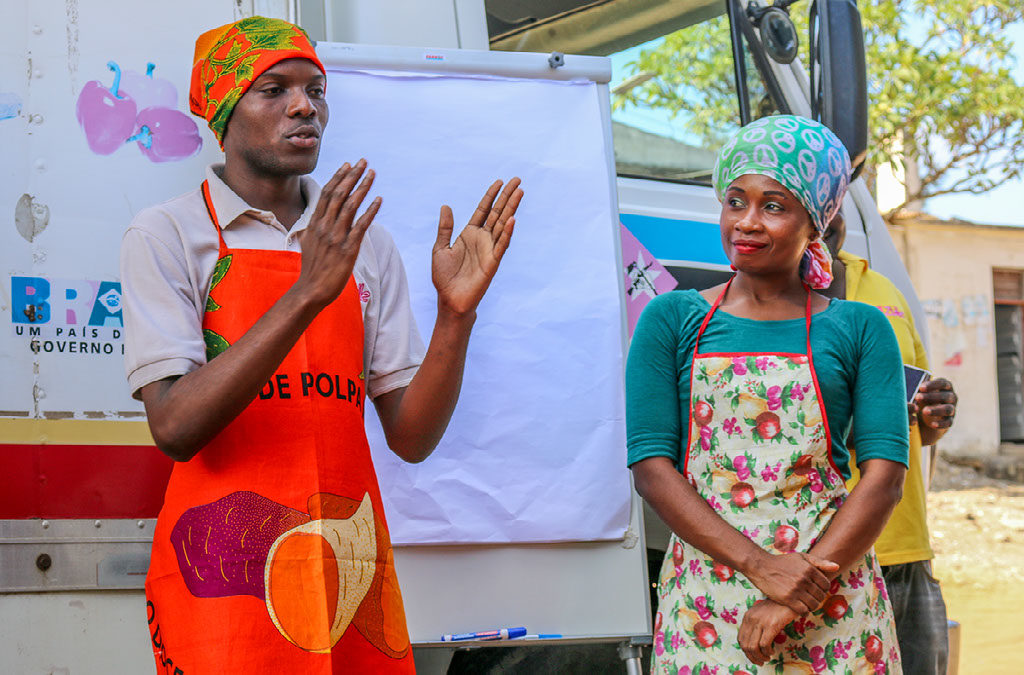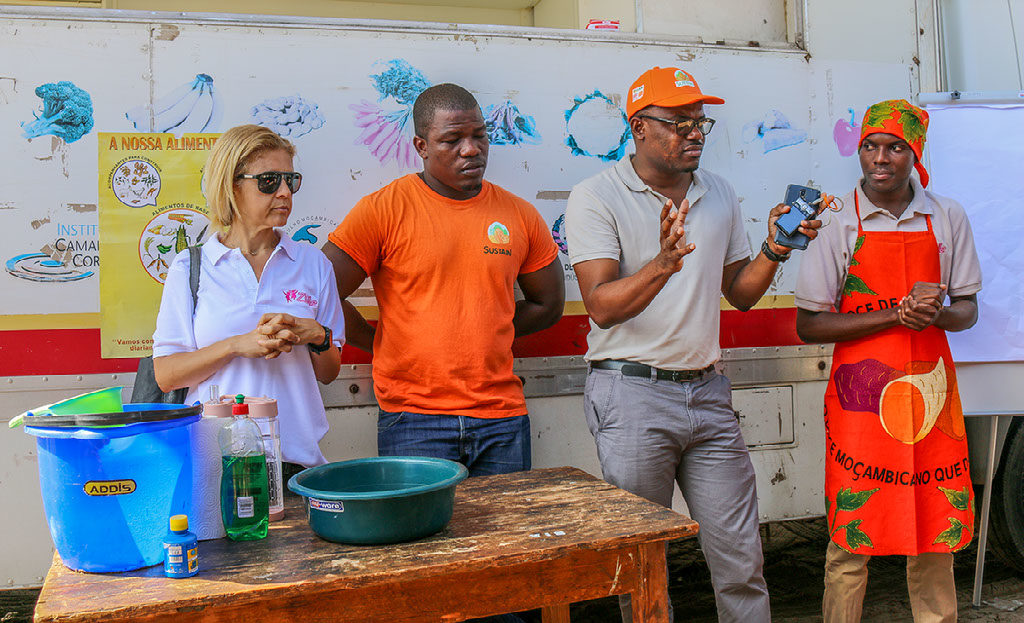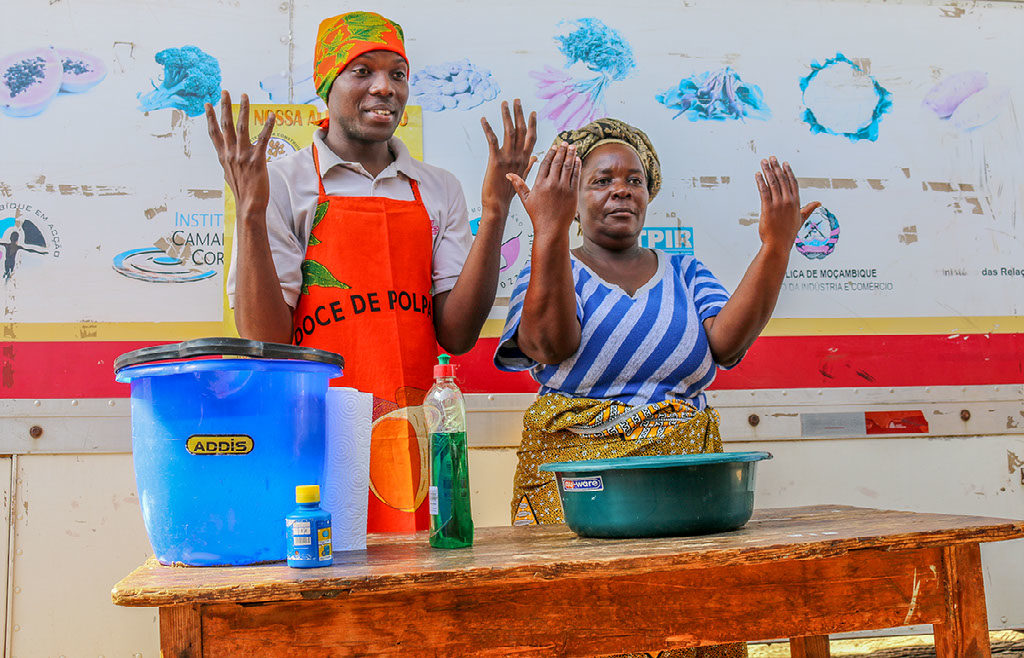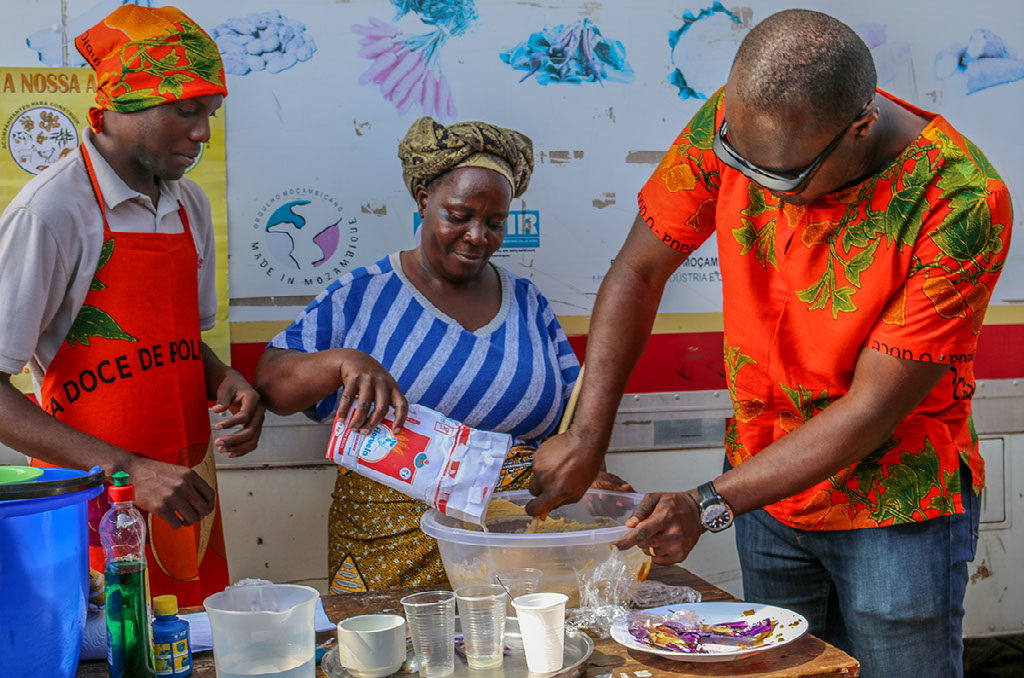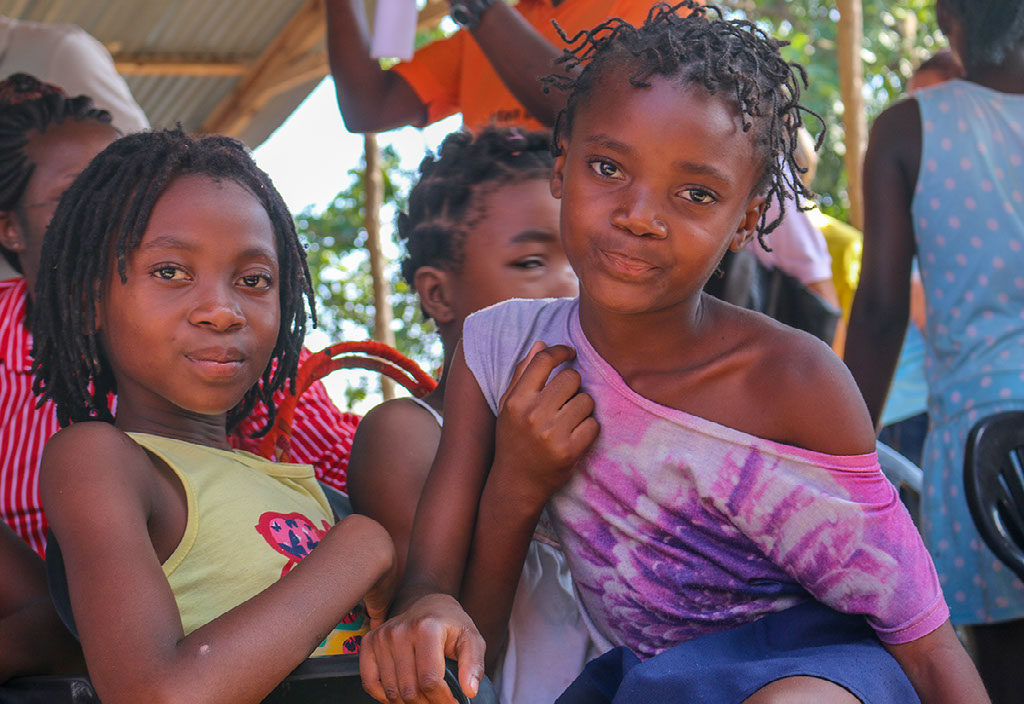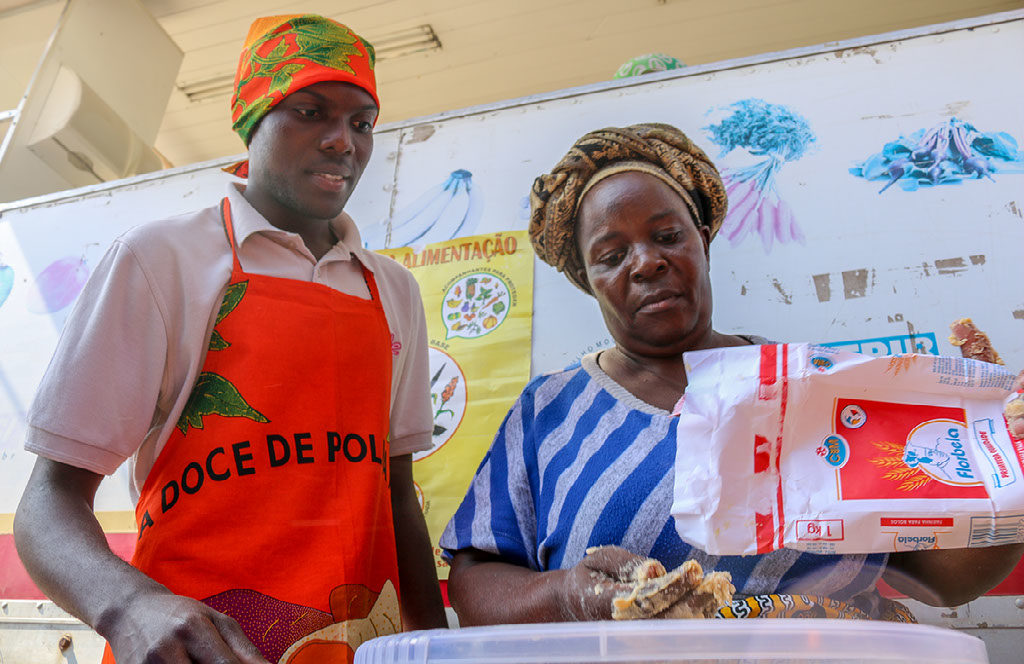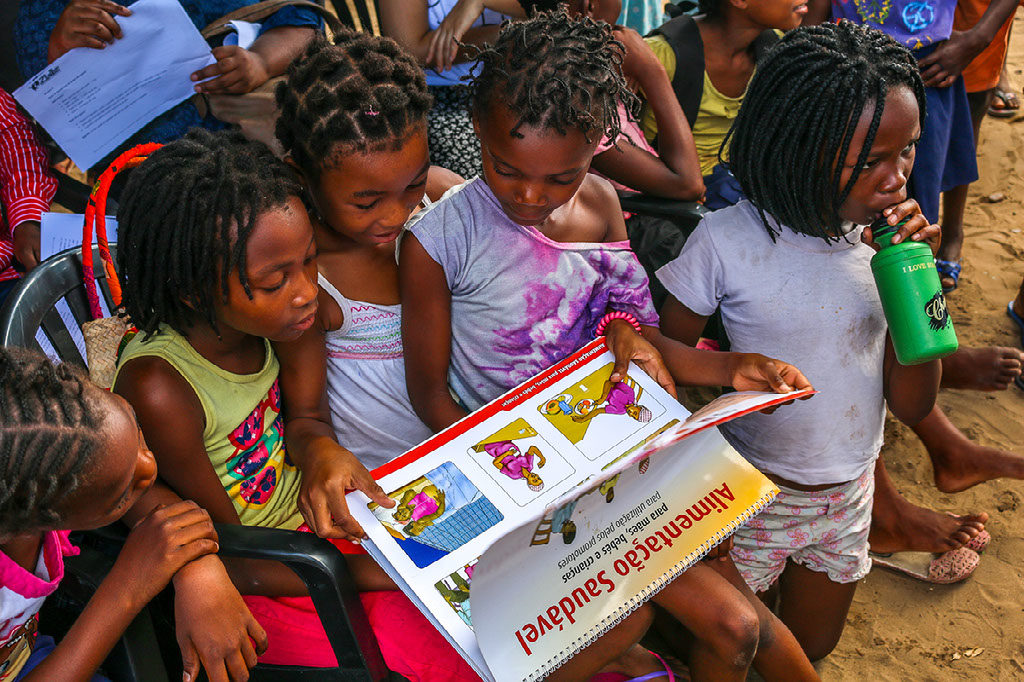As you drive out of Maputo in April the roads transform from grand, tree lined boulevards to narrow and dusty pathways filled with shops and marketplaces where people are busy buying and selling their produce. The cars and bicycles kick up dust as they drive by and the houses and settlements which fill the many winding roads look small and somewhat temporary.
At 8am the heat is already intense and the air is thick with humidity. It is going to be a very hot day. As we drive through the streets, the wind coming through the windows provides a little relief from the unrelenting heat.
After an hour of driving we pull up at our destination and hear the sound of loud drumming and music around us. As we slowly pile out of the car we are greeted by a sea of orange and a mix of vibrant colours. We are surrounded by young girls dancing energetically while boys and girls play instruments behind them. The dancers move quickly in tune with the music and the vibrant colours of their costumes are a dazzling sight.

